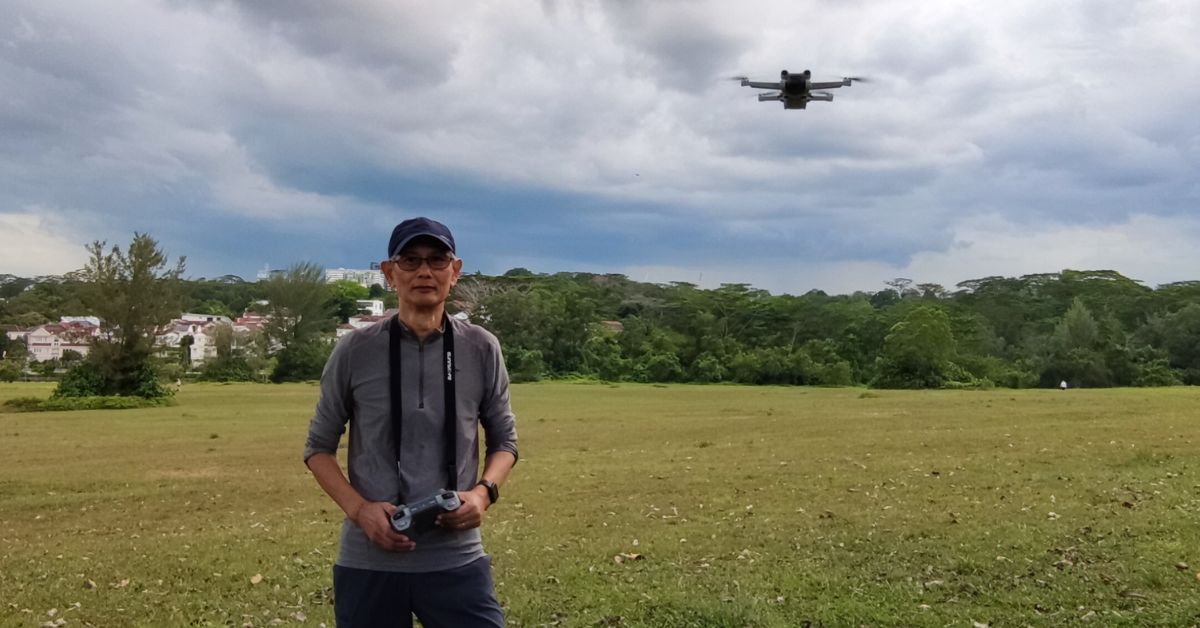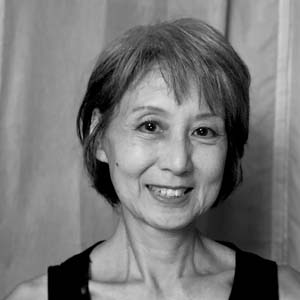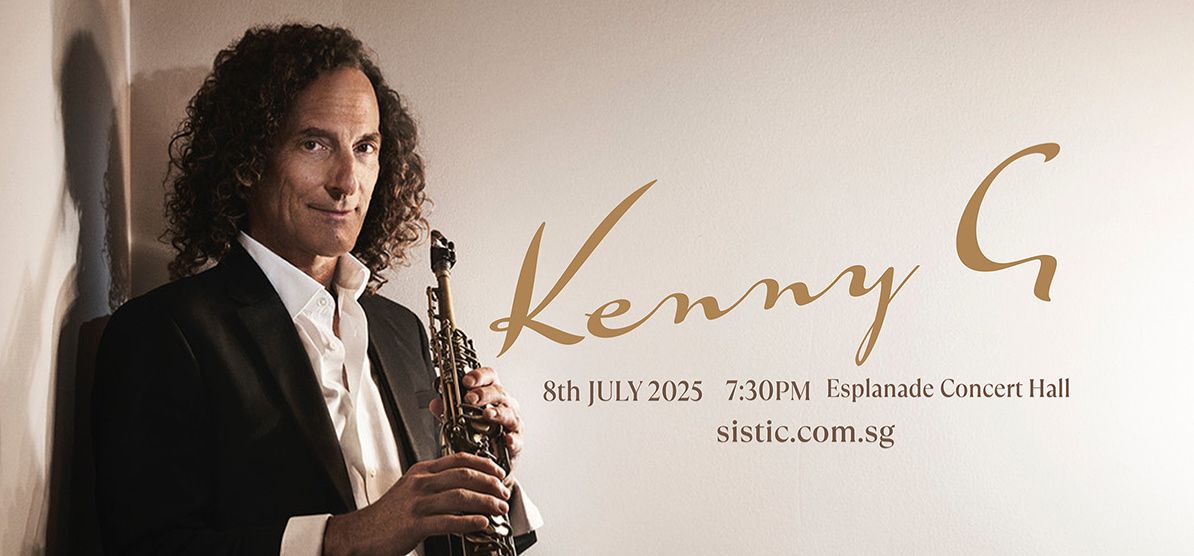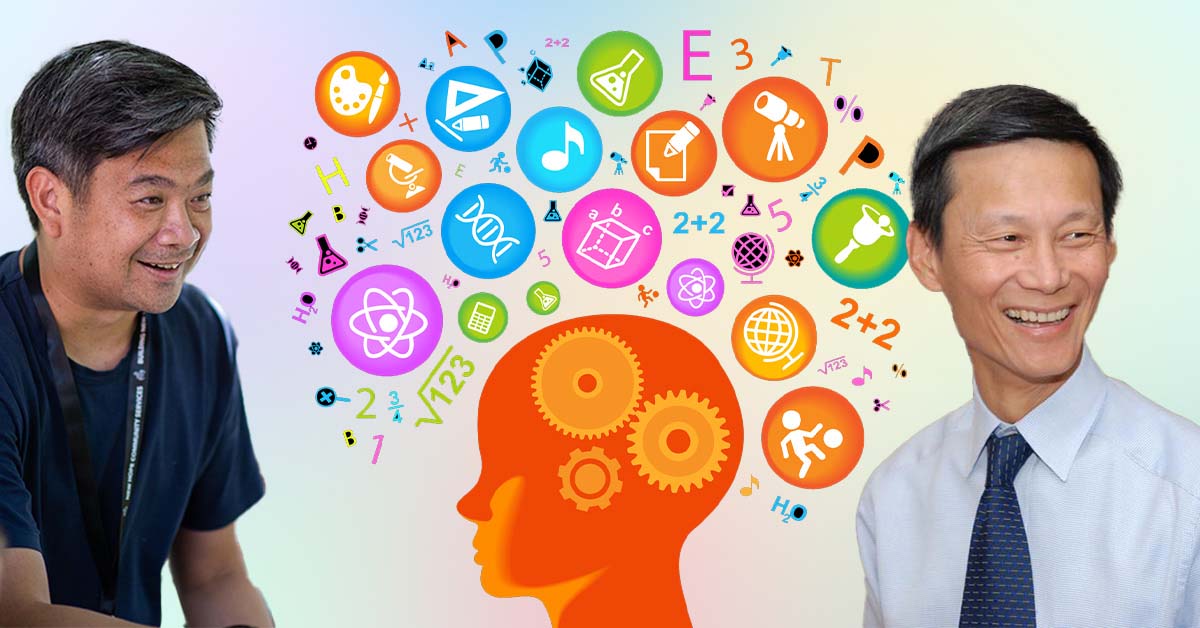
Mental health challenges have been on the rise, more so since the pandemic. In its wake, mindfulness practices are surging, an ancient balm for today’s troubled minds.
There have been fallouts of all kinds from the Covid pandemic. Mental health has not been spared, and mental health practitioners have braced for it across the planet.
On the bright side, unlike the situation after the Spanish Flu pandemic over a century ago, these professionals are better prepared and better able to reach out to help those in distress.
In mid-2020, during Singapore’s Circuit Breaker, the team at human resource and corporate wellness consultancy Emerge Performance offered support for pandemic-induced mental distress.
The tool of choice, delivered virtually over Zoom, is an ancient one given new weight by scientific evidence over the last 20 years — mindfulness.
Advertisement
Lim Han Ee, psychologist and Principal Coach at Emerge Performance, and retiree Gerard Tan met for the first time in person beyond those Zoom sessions to share the power of mindfulness.
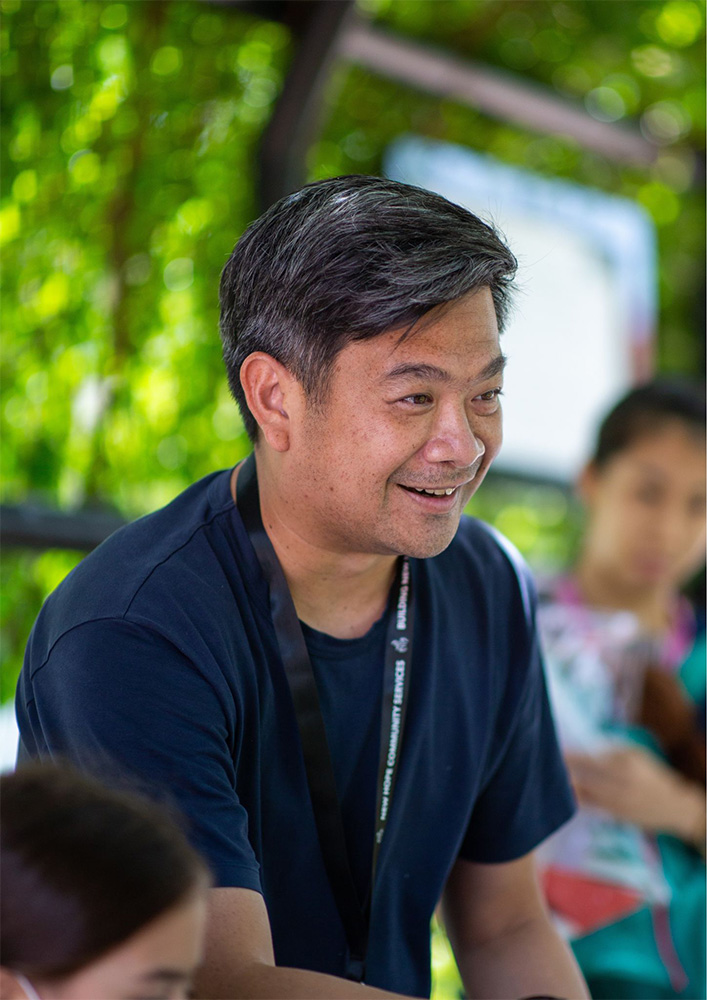
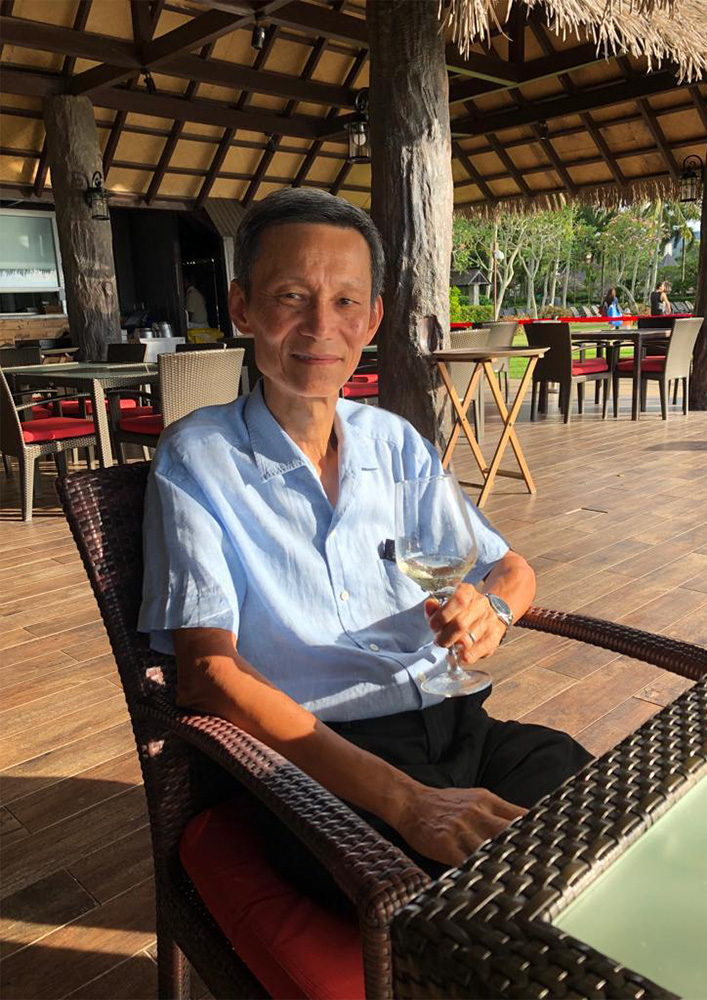
How did you discover mindfulness?
Lim Han Ee (HE): I was doing psychologist training in the US in the Bay Area well over 12 years ago, and my wife would come home from yoga class and say that this person’s class was amazing, fantastic, and that I should attend it. It turned out that her yoga teacher was the daughter of John Kabat-Zinn (author of Full Catastrophe Living: Using the Wisdom of Your Body and Mind to Face Stress, Pain, and Illness). That book was very popular at that time so I picked it up and got into it.
Everyone was talking about mindfulness then — it was hot. The biggest client offering it was the US military. Sports psychology and mindfulness were taken on board as some of the ways to address the PTSD and different trauma issues of returning troops.
My specialisation was in sports and performance. I actually come from the military as well, so it was natural to use mindfulness not just for recovery and healing, but also as a means of performance enhancement in some of those situations.
Then I started practicing, and…became a properly trained teacher in providing and running mindfulness classes.
Gerard Tan (GT): I started about 3 years ago. I was at the stage in my life where it was just a matter of when, not if, health challenges would come. And when it does, it would be really good to manage those situations better mentally.
What drew you to mindfulness?
Gerard Tan (GT): To learn how to modulate my reactivity… I have tended to be a very reactive person, and maybe still am. It is so important to catch myself before I react. You want to be able to respond in an appropriate manner.
Related to that, it’s the mind that tells itself a lot of stories. And they are not all true stories. Mindfulness has helped me to recognise this. What’s more important is this awareness of the beauty of the present moment…to me the highest value of mindfulness.
If I can live the present moment with the focus that mindfulness enables me to, and not let my mind take over reliving the past or worry unnecessarily about the future, it gives me a lot more ability to manage myself, things, and people around me, better.
What's your experience of it?
Gerard Tan (GT): The experience was a revelation. I feel mindfulness is something I should have learned about way back, even during my corporate days, because it could have helped me a lot. If you ask me, it is absolutely useful for anybody in any situation.
Han Ee’s team organises morning meditations twice a week, Mondays and Fridays. Monday helps me start the week, and Friday helps me to end the week. I think those are beautiful ways of bringing in the community together to practice, and be reminded about the elements of mindfulness.
How did mindfulness help the people who responded during Circuit Breaker?
Lim Han Ee (HE): People who felt burnt out are getting better. Painful pregnancy…general life stress, overwhelming work, quality of life….
They sleep sometimes during my practices (laughs) and that’s ok!
They relish their food more. There are practices where we invite them to eat mindfully. The way they consume, the way they relate to how their bodies change. They take better care of themselves as a result.
It started really with helping people, specifically caregivers, during the pandemic. I was burnt out as a coach, and hearing stories about nurses and teachers all struggling. I wanted to help them, so we just pulled together resources to help people — and then realised that there’s a lot more people who can benefit from this. So we just expanded, not just for caregivers, but everyone.
While it’s called The Mindful Village, it’s not all mindfulness. It’s about wellness. There are four elements — physical wellness, mental wellness, emotional wellness, and what I call spiritual wellness. When I say spiritual wellness, it is more about rediscovering a sense of purpose.
We organise volunteer sessions, CSR events for our community, to provide opportunities for people to give back. It re-invigorates, renews their spirit. We go for walks, we are going to organise makan sessions to bring people together, and then there are the regular mindfulness sessions. It’s all framed around that. Mindfulness is the key portfolio that aligns all this.
How can seniors benefit from mindfulness?
Lim Han Ee (HE): I think there are a few things about mindfulness that would be of tremendous value to seniors.
There are cognitive benefits as they are meditating. Essentially, think of it as mental fitness; as they are doing their reps, they stay alert, their minds and brains are active.
In some of the programmes, we also incorporate movement, so there is the physical benefit as well.
The other aspect is community. They are practising with other people. That social interaction is an important part of our 8-week programme. Learning from each other, peer support, group work — these things can be quite powerful as we practice together.
Gerard Tan (GT): Speaking as a senior, mindfulness helps in many ways.
It avoids one being too absorbed by the past. We only remember the good things but not the bad. I see people sometimes get very angry and hostile with family members because they want to live in the past. That creates conflicts.
We all carry a lot of baggage. And as you grow older we accumulate more and more baggage. That’s not helpful for relationships.
And as we grow older, some of us start worrying about the future: ‘What’s going to happen to me? What happens when I get ill…?’
It’s not wrong to plan, to take measures to prepare for certain things, but you don’t change anything by worrying about it. If I keep worrying about those things then I don’t enjoy the present moment.
I like that I now understand it’s more important that I enjoy the present moment rather than recreate the past, or expect others to continue my fascination with the past.
I think mindfulness’ whole focus on the present moment and not allowing your emotions to get the better of you has helped me. You get to appreciate life a lot more in the now.
How else does mindfulness improve lives for people?
Lim Han Ee (HE): One bucket is the quality of life, but there is also the clinical aspect of it. For example, depression and pain. MBCT was designed to help depression.
The second thing is pain. Yes, there is physical pain, but a lot of it is also emotional and psychological pain. When we learn how to come to terms with it, we realise that our experience of pain changes too, That’s a benefit of regular practise — 10-15 minutes a day — whether you are young, middle aged or senior.
Gerard Tan (GT): When we were working, food was just to keep us going. That is why people take to fast food, right? You just gobble things down, you don’t think about it or taste it. But mindful eating really gets me to appreciate food. I eat to live, but now I can appreciate what I am eating!
I go for a daily walk. In the past, I thought of walking as an exercise, so it’s good. It still is, but now in my walks I appreciate everything I see around me, and hear — the colour of the leaves, the birds chirping, the wind, the sun… because I am mindful and looking at these things with attentiveness.
In the past it was just walk fast, fast, fast from point A to point B, because I want to count steps. You still want to do that for health, but you now appreciate other things.
What are the biggest barriers to mindfulness?
Lim Han Ee (HE): This fast food, instant gratification idea of mindfulness as an intervention — ‘McMindfulness’.
Example:
"I feel very stressed, I need something to be fixed inside my head. Everyone’s talking about mindfulness, it's so promising, instant money-back guarantee literally…great, I want to do it."
And that actually becomes a barrier because, when they try it… “Hang on, I’ve been practising for 10 minutes, I’m still very distracted. Where’s the improvement? This is not what I signed up for.”
We definitely have to be careful about overselling it. Mindfulness is about paying attention. It is not about fixing anything. Benefits will come as we cultivate this discipline, but it takes time.
How much time?
Lim Han Ee (HE): It varies. Most of the time the intervention is 8 weeks long, so most studies are based on an 8-week programme, for example MBCT (Mindfulness Based Cognitive Therapy) or MBSR (mindfulness-based stress reduction).
MBCT is an 8-week mindfulness bootcamp programme. There are criteria. Not everyone is suitable to undertake this. It is quite intense — 2.5 hours every week, in-person sessions, plus homework every day.
Gerard Tan (GT): It is not terribly difficult homework, but you must spend the time to do it.
Lim Han Ee (HE): It’s like learning a new language. You need the proper instruction and teaching. But mindfulness is very accessible . You can see it on Youtube, for example, however, because it is a DIY experience, no one is there to support you.
Is going DIY an issue with practicing mindfulness?
Lim Han Ee (HE): One of the things we are careful about is the possibility of triggering deep-seated emotions. This is of importance to people with trauma or more serious psychological ailments, because it gets in touch with some things they may have never processed before. We want to make sure that when such things happen, we are there to offer support. It may be part of the healing process.
In some cases, we do ask questions before we enrol them — Do you have suicidal thoughts? What kind of medication are you on? Are you seeing a psychiatrist? We may need to have a conversation with the physician on how best to offer support.
It’s not as simple as saying you are in or out, because it is not a clinical examination for selection. It’s what’s more suitable and helpful for the person.


